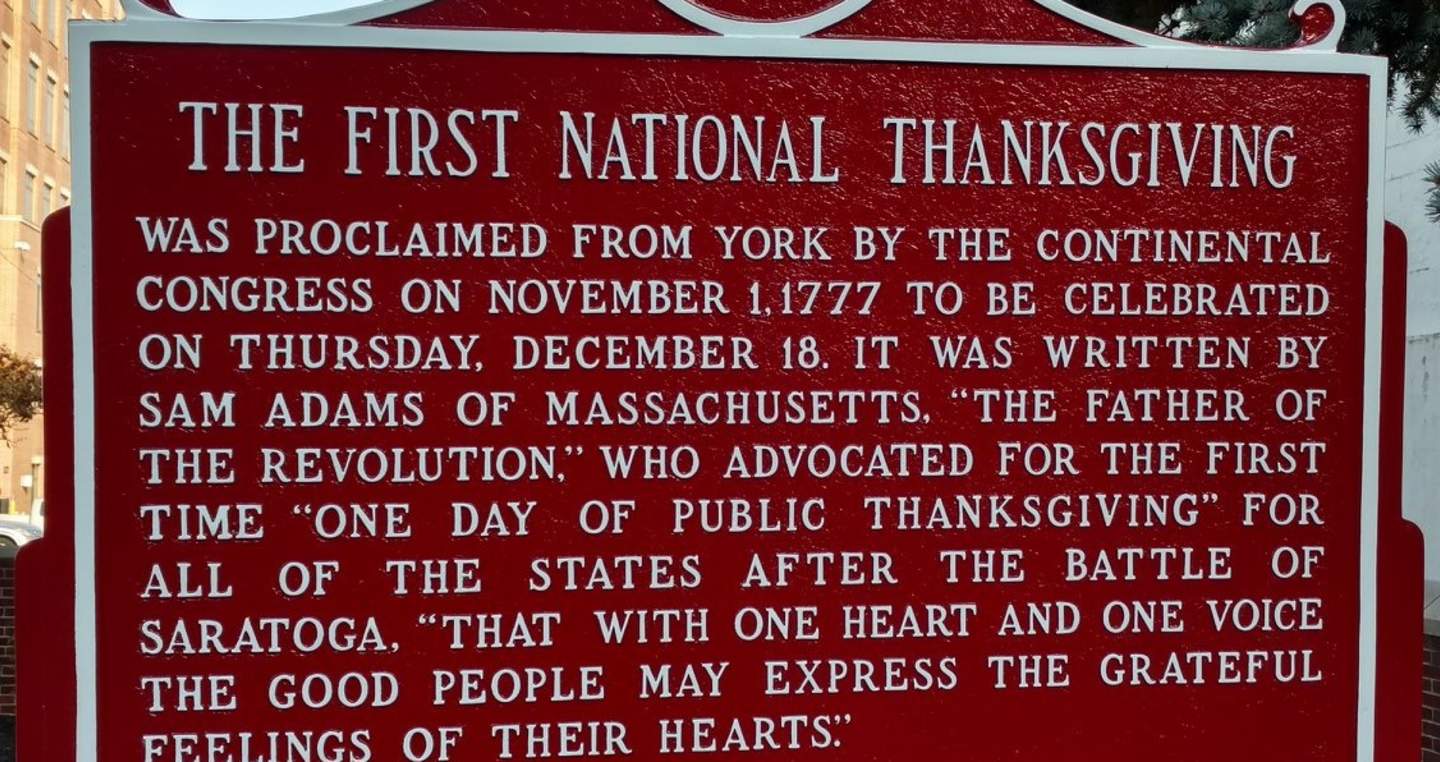York County History
Travel a little west from Philadelphia into Central Pennsylvania and discover the First Capital of the United States: York, PA.
Laid out by order of the Penn family as the first city west of the Susquehanna River in 1741, less than four decades later York became the seat of power for our nation when it hosted a Continental Congress on the run from British troops in 1777-78. For nine months, our Founding Fathers met to shape an upstart nation in York's Colonial Court House on what is now Continental Square.
On November 15, 1777, it was here they adopted the Articles of Confederation officially uniting what was then just a rebellious collection of British colonies as one nation named the "United States of America."
Shortly before and following the watershed Battle of Saratoga, a most American of holidays was first proclaimed from York: Thanksgiving. And in one of the most intriguing episodes of early American history, discontent with General Washington stewed within the Conway Cabal.
In the present day, York's Colonial Court House has been reconstructed on the banks of the Codorus Creek near the city's 1741 Plough Tavern. Together with the preserved General Gates House and Bobb Log House, these sites comprise Downtown York's engaging Colonial Complex.
History comes alive seasonally here each year with re-enactments and demonstrations of what life was like during the Colonial era.
And the story doesn't end in the 1700s. Continuing as a crossroads of American history for the better part of three centuries, York is perfectly positioned as a unique getaway for history lovers.
What else can you do in York?
Get on a faithful-replica locomotive at Northern Central Railway and ride the same rails through southern York County that in 1863 carried Abraham Lincoln to give his epic Gettysburg Address.
Visit the spot in eastern York County where the North burned a vital bridge crossing in June 1863 and stopped Confederate advances toward Harrisburg and Philadelphia, blocking troops from crossing to the east side of the Susquehanna River just before the Battle of Gettysburg. The Burning of the Bridge Diorama commemorates this moment in Wrightsville.
Tour the largest town in the North to surrender to Confederate forces. York has that distinction as well.
Learn while touring the York County History Center - Agricultural & Industrial Museum how York's industrial community contributed substantially to the arsenal of democracy that helped to defeat fascism during World War II.
America's First Capital is also your convenient central locale to explore the nearby Gettysburg Battlefield, Lancaster County's Amish country, the War of 1812 historic sites of Baltimore and so much more!
Discover how your next getaway to York County will be one for the history books!


